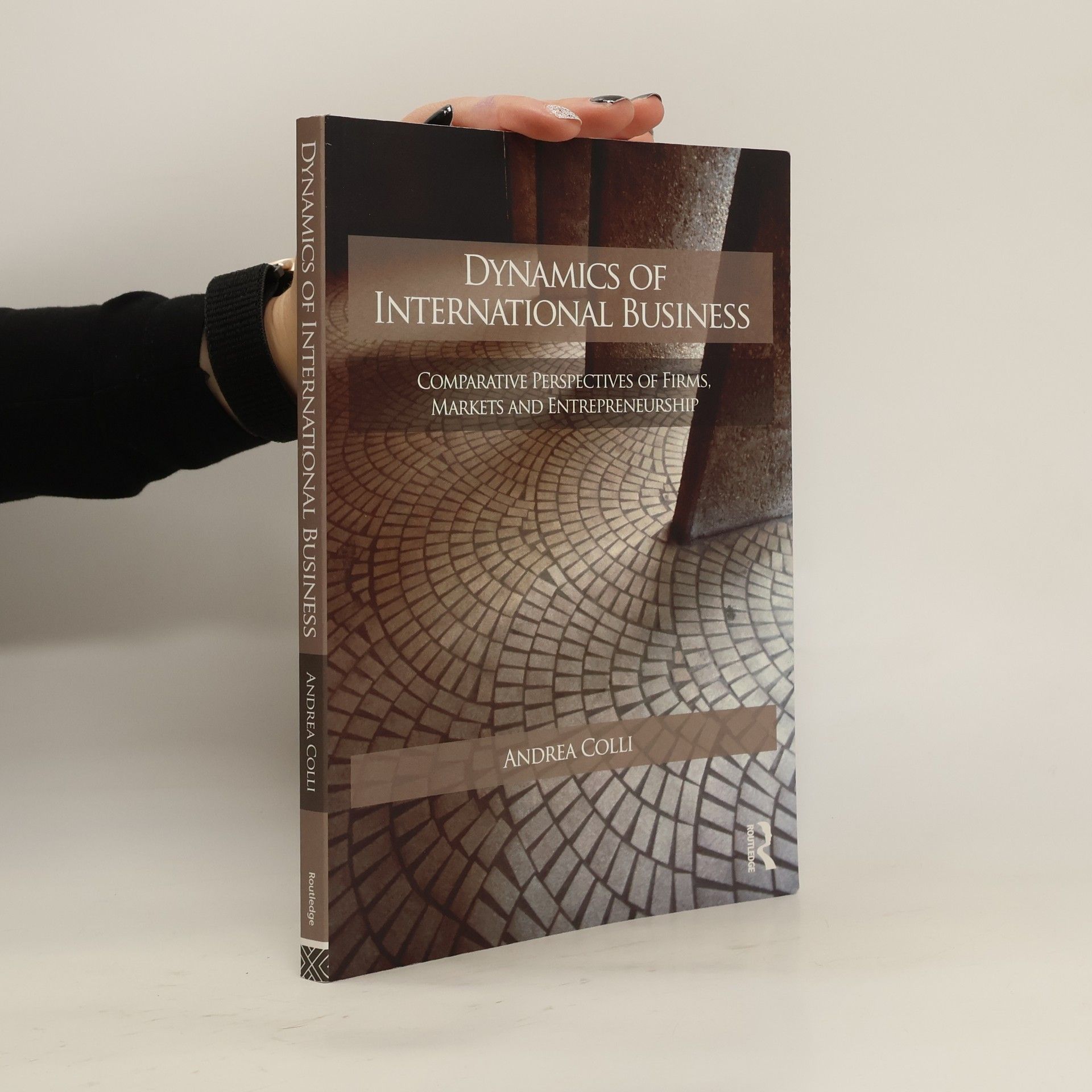Examining the multifaceted process of global integration, this book delves into the technological, institutional, cultural, and political drivers of globalization. It presents a nuanced understanding of how these elements interact and shape the modern business landscape and society at large. Through this analysis, readers gain insights into the complexities and implications of globalization in various contexts.
Andrea Colli Book order (chronological)





Dynamics of International Business
- 222 pages
- 8 hours of reading
The Dynamics of International Business offers a comparative, chronological overview of the strategic and structural evolution of international firms. Organized around eras of global economic development, the text synthesizes research on the internationalization of firms, highlighting crucial turning points in the evolution of the international economy. A particular emphasis is placed on the relationship between historical evidence and the theoretical frameworks available for its interpretation. Each period is illustrated by a selection of short case studies from a variety of industry sectors, including the Levant Company, Nestlé, Singer, Saint Gobain and NEC. An essential textbook for courses in business and economic history, this book will also be a valuable resource for scholars and students of international business more generally.
The History of Family Business, 1850-2000
- 116 pages
- 5 hours of reading
Offering a historical and comparative perspective, this book delves into the intricacies of family businesses. It examines their evolution, unique challenges, and contributions across different cultures and economies. By analyzing various case studies, it highlights the significance of family dynamics in business success and sustainability. The text serves as a valuable resource for understanding the complexities and importance of family enterprises in the global marketplace.
Storia d'impresa. Complessità e comparazioni
- 394 pages
- 14 hours of reading
Dal periodo preindustriale alla globalizzazione, questo volume offre una visione complessiva degli sviluppi che hanno segnato le vicende dell'impresa industriale a livello mondiale. Attraverso un approccio storico comparativo, si ripercorre l'affermazione delle maggiori economie industriali (Europa, Stati Uniti e Giappone), a cui si affiancano, nel Novecento, quelle emergenti (Cina, India, Corea del Sud, quest'ultima paragonata a un Paese dal passo incerto come l'Argentina). Un ampio capitolo conclusivo è dedicato all'evoluzione economica italiana.Gli autori analizzano criticamente la struttura e i cambiamenti della grande impresa in rapporto con lo sviluppo dei sistemi economici nazionali e continentali, della tecnologia e dei contesti politici e sociali, offrendo una preziosa chiave di lettura per comprendere le complesse dinamiche della crisi globale che ai giorni nostri sembra destinata a inasprirsi.
The History of Family Business, 1850 2000
- 116 pages
- 5 hours of reading
Focusing on the dynamics within family businesses, this book explores their relationships and interactions in various political and institutional contexts. Andrea Colli provides a comparative analysis of family businesses' performance against other economic organizations, highlighting their role in shaping modern industrial capitalism. The study delves into the factors that contribute to the decline and ongoing relevance of family enterprises, offering insights into their evolution and impact on the economy.